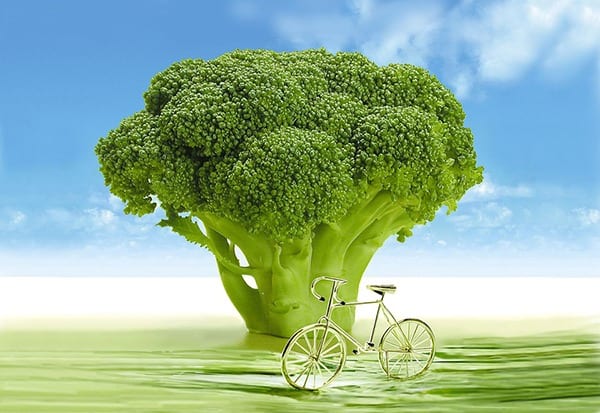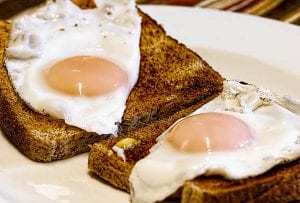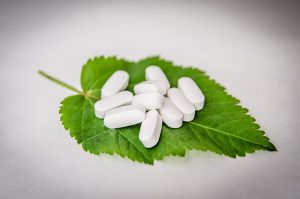
Safe Supplements To Reduce Blood Sugar
Updated May 18, 2024
Introduction:
Lowering blood sugar levels is a crucial concern for individuals with conditions such as diabetes or prediabetes. While medication is primary in blood sugar management, incorporating lifestyle changes and supplements can provide additional support. In this regard, a combination of affordable and safe supplements can potentially aid blood sugar control when used under medical supervision. Additionally, implementing various lifestyle modifications, such as adopting a balanced diet, engaging in regular physical activity, and managing stress levels, can significantly reduce blood sugar levels.
These lifestyle changes and appropriate supplementation are comprehensive approaches to managing blood sugar and promoting overall well-being. It is crucial to consult with healthcare professionals to personalize the process and ensure it aligns with individual needs and medical conditions. By integrating these strategies, individuals can take proactive steps to achieve optimal blood sugar control and improve their overall health.
Effective Supplements To Reduce Blood Sugar: A Comprehensive Guide
Lowering blood sugar is essential for people with diabetes or prediabetes. While medication and lifestyle changes are the main treatments, some safe and affordable supplements may provide additional support. Always consult a doctor before starting supplements.
Key Supplements:
1. Berberine: A plant compound that may improve insulin sensitivity and glucose metabolism. Use with caution due to potential drug interactions.
2. Cinnamon: It contains bioactive compounds that may enhance insulin sensitivity. It is easy to add to the diet, but its effectiveness varies among individuals.
3. Chromium: A trace mineral that may improve insulin sensitivity and glucose uptake, especially in those with deficiency. Research results are mixed.
4. Alpha-Lipoic Acid (ALA): An antioxidant that may improve insulin sensitivity and decrease fasting blood sugar. High doses may interact with medications.
5. Magnesium: Essential for glucose metabolism. Deficiency may impair insulin function. It can be obtained through supplements or magnesium-rich foods.
6. Fibre slows carbohydrate digestion and absorption, helping regulate blood sugar. It is found in whole grains, legumes, fruits, and vegetables.
7. Fenugreek: Contains galactomannan fibre that slows glucose absorption, potentially improving insulin sensitivity and glucose uptake.
8. Gymnema Sylvestre: An Ayurvedic herb that inhibits sugar absorption, enhances beta-cell function, and stimulates insulin production.
9. Bitter Melon: Contains active compounds that may stimulate beta-cell function and increase cell glucose uptake.
10. Ginseng: May reduce inflammation and enhance glucose uptake independently of insulin, potentially improving insulin sensitivity.
While these supplements promise, they should not replace prescribed medications or lifestyle changes. Individual responses may vary, and ongoing monitoring is essential. Always consult a healthcare professional before starting any supplement regimen.
Broccoli’s Potential to Lower Diabetic Blood Sugar
Cutting-edge research continues to unlock nature’s bounty to aid human health. In Sweden, scientists demonstrated that broccoli’s bioactive compound sulforaphane may help regulate blood sugar levels in people with type 2 diabetes. With diabetes prevalence soaring globally, novel solutions offer hope.
In a pioneering double-blind clinical trial published in 2023, 89 obese participants with poorly controlled diabetes received either a broccoli seed extract standardized to sulforaphane or a placebo for six months. Those on the extract experienced a 10% lower average blood glucose compared to placebo, enough to potentially stave off complications. Effects were most remarkable among those with the highest baseline blood sugar levels.
Dr. Anders Rosengren, the lead researcher from the University of Gothenburg, stated, “We are excited about these results and the potential for sulforaphane to aid in diabetes management. However, more research is needed to confirm these findings and determine optimal dosing strategies.”
The extract dosing matched consuming five kilograms of broccoli daily, which is feasible through therapeutic purification. Researchers seek approval to expedite delivering this potential boon to patients. Visionaries worldwide are investigating the broader impacts on metabolic and vascular function.
Dr Elizabeth Robertson, Director of Research at Diabetes UK, cautioned, “While these results are promising, more research is needed to see if this extract can be used to treat Type 2 diabetes, as it was only tested in a small number of people and only helped a subset of those who took it. For now, we recommend that people continue with the treatment their healthcare team prescribes.”
These results reinforce the concept of food as medicine and renew optimism that thorough research partnerships between academia and industry can overcome obstacles in delivering nature’s wisdom. Further studies aim to unlock the manifold mechanisms of total spectrum extracts, applying precision to amplify phytonutrients’ potential to help address the diabetes pandemic.
Lifestyle Changes for Lower Blood Sugar: A Holistic Approach
In addition to incorporating supplements into a routine, several lifestyle changes can help lower blood sugar levels and improve overall glycemic control. These changes are often recommended as part of a comprehensive approach to managing diabetes or prediabetes.
1. Balanced and Healthy Diet: Focus on consuming whole, unprocessed foods rich in fibre, lean proteins, and healthy fats. A study published in the Journal of the American Medical Association found that a diet high in whole grains, fruits, and vegetables reduced the risk of type 2 diabetes by 41% compared to a diet high in refined grains and added sugars.
2. Portion Control: Eating smaller, frequent meals throughout the day instead of large, infrequent meals can help prevent blood sugar spikes. A study in the journal Diabetes Care showed that consuming smaller, more frequent meals resulted in better glycemic control and reduced insulin resistance compared to larger, less frequent meals.
3. Regular Physical Activity: Aim for at least 150 minutes of moderate-intensity weekly aerobic exercise. The American Diabetes Association recommends combining aerobic exercise and resistance training for optimal blood sugar management. A meta-analysis published in Diabetologia journal found that regular exercise improved HbA1c levels (a measure of long-term blood sugar control) by an average of 0.67%.
4. Weight Management: Losing just 5-10% of body weight can significantly improve insulin sensitivity and reduce the risk of developing type 2 diabetes. A study in the New England Journal of Medicine showed that individuals with prediabetes who lost 7% of their body weight through lifestyle changes reduced their risk of developing type 2 diabetes by 58%.
5. Stress Management: Chronic stress can increase cortisol levels, leading to insulin resistance and higher blood sugar levels. A randomized controlled trial published in Diabetes Care found that mindfulness-based stress reduction significantly improved HbA1c levels and reduced stress in individuals with type 2 diabetes.
6. Regular Monitoring: Self-monitoring of blood glucose (SMBG) can provide valuable insights into how different foods, activities, and medications affect blood sugar levels. A meta-analysis published in the Cochrane Database of Systematic Reviews found that SMBG improved glycemic control and reduced HbA1c levels in individuals with type 2 diabetes.
7. Adequate Sleep: Aim for 7-9 hours of sleep each night. A study published in the journal Diabetes Care found that individuals who slept less than 6 hours per night had a 28% higher risk of developing type 2 diabetes compared to those who slept 7-8 hours per night.
8. Limit Alcohol Consumption: Excessive alcohol consumption can lead to insulin resistance and increase the risk of hypoglycemia in individuals taking insulin or certain diabetes medications. The American Diabetes Association recommends limiting alcohol intake to no more than one drink per day for women and two drinks per day for men.
These lifestyle changes should be personalized to individual needs and preferences. Working with a healthcare team, including doctors, dietitians, and diabetes educators, can help develop a tailored plan for blood sugar management that aligns with specific health goals and requirements.
Broccoli and Sulforaphane: A Powerful Duo in Diabetes Management
Broccoli, a nutritional powerhouse among cruciferous vegetables, has emerged as a potential secret weapon against diabetes. The key lies in sulforaphane, a sulfur compound found abundantly in broccoli, especially broccoli sprouts. Recent research has illuminated sulforaphane’s role in blood sugar control.
A 2017 study published in ‘Science Translational Medicine’ revealed that sulforaphane reduced fasting blood glucose levels and improved glycemic control in obese patients with dysregulated type 2 diabetes. During a 12-week randomized, placebo-controlled trial, 97 participants observed a 10% reduction in glucose levels, significantly mitigating the risk of complications in the eyes, kidneys, and blood.
Sulforaphane’s potential mechanism of action involves inhibiting hepatic glucose production, offering a new therapeutic avenue for type 2 diabetes. Additionally, broccoli and sulforaphane have been reported to reduce hyperglycemia, hyperlipidemia, insulin resistance, and diabetes-induced oxidative stress, linked to the activation of Nrf2 and PI3K/Akt pathways and inhibition of NF-κB, GSK3β, α-glucosidase, and DPP-IV activities.
While these findings are promising, it’s important to note that broccoli and sulforaphane should complement, not replace, conventional diabetes treatments. **Further clinical trials, especially phases II and III with larger patient groups, are warranted to unravel sulforaphane’s impact on blood sugar control fully**.
For those eager to incorporate more sulforaphane into their diet, broccoli sprouts contain the highest glucoraphanin concentration, the sulforaphane precursor. Sulforaphane is also found in cruciferous vegetables like cabbage, cauliflower, Brussels sprouts, bok choy, kale, collards, mustard greens, and watercress.
As research continues to explore the potential of dietary compounds in disease management, broccoli and sulforaphane stand out as a powerful duo in the quest for better diabetes control and overall health. However, always consult a healthcare provider before making significant dietary changes to manage any medical condition.
Conclusion: Supplements for Reducing Blood Sugar
In summary, the pursuit of effective strategies to lower blood sugar levels, particularly in individuals with diabetes or prediabetes, has led to the exploration of affordable and safe supplements. Berberine, cinnamon, chromium, alpha-lipoic acid, magnesium, fenugreek, Gymnema Sylvestre, and bitter melon have shown potential to manage blood sugar.
These supplements offer a holistic approach to blood sugar control when used as complementary tools alongside a balanced diet and regular physical activity. However, it’s crucial to emphasize that supplements should never replace prescribed medications or recommended lifestyle modifications. Ongoing monitoring and communication with healthcare professionals are essential for effective management.
Furthermore, sulforaphane in broccoli has emerged as a natural aid to reduce blood sugar levels, potentially mitigating complications, especially in those with obesity and elevated baseline glucose levels. This discovery signifies a breakthrough in diabetes management, offering hope for safer and more effective treatments.
The path to comprehensive blood sugar management involves harnessing supplements’ potential, advancing scientific research, and promoting overall well-being.
Other Stories of Interest

What is the Gambler’s Fallacy? The Fast Track to Financial Ruin

The Statin Scam: Deadly Profits from a Pharmaceutical Deception

The Great Cholesterol Scam: Profiting at the Expense of Lives

Wealth is Health: It’s Essential for Everything

The Cholesterol Hoax: Unveiling the Hidden Truth

CLA vs Linoleic Acid: The Ultimate Omega Showdown

Coffee Lowers Diabetes Risk: Sip the Sizzling Brew

Oleic Acid Benefits for Skin: The Secret to Luminous, Ageless Glow

Beetroot Benefits for Female Health: Boost Natural Vitality

Example of Out of the Box Thinking: How to Beat the Crowd

6 brilliant ways to build wealth after 40: Start Now

Fear of Investing: Overcoming and Succeeding

Maximizing Wellness: Exploring Zinc Carnosine Benefits

Beetroot Benefits for Men: Extraordinary Potential, Humble Root

What is a Paradox: Understanding the Laws of Life and the Path to Peace
The Priceless Fortune Within: Health is Wealth


